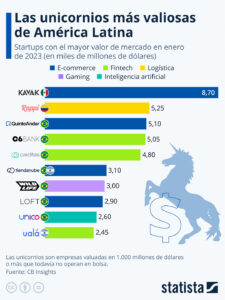After the first months of operation, Barte, a B2B payments fintech for small and medium-sized businesses (SMEs), reached BRL$20 million in transactions on its platform during March.
From that point, the focus shifted towards developing acquisition channels, the payment product, and the credit segment. Now, the third pillar of this strategy is taking shape.
In a recent announcement, the fintech revealed the successful fundraising of BRL$20 million through debentures.
This event marks the third funding in the last 12 months, following capital rounds of BRL$16 million in March and BRL$6.5 million in November 2021.
The debenture operation, structured and coordinated by the Bamboo fintech (which recently obtained authorization from the CVM to coordinate public offerings), aims to expand Barte’s credit segment.

This year, the company has already released BRL$60 million and aims to reach BRL$100 million by December.
“Our payment platform has grown. So, we increasingly understand the areas where we needed to develop the product to add more value and for our customers not only to use it but to join Barte, expand its use, and recommend it to others,” said Caetano Lacerda, CEO and co-founder of Barte, in an interview with Finsiders.
Looking to the following year, the fintech aims to quintuple its revenues. However, this does not necessarily imply granting large-scale loans due to the interest rates in Brazil and the United States.
The entrepreneur highlights that credit origination results from daily work, where opportunities are identified from the payment area using critical data. These credit scores depend on companies’ payment information.
“Our orientation is much more based on the company’s revenues, the processed volumes, and not necessarily the originated credit. We like to be conservative in our credit policies. Our credit is a second condition, a second-order condition above the payment product, where we start,” explained the executive.
SMEs leverage these resources to split transactions with customers, pay suppliers, or make investments for growth.
Barte has gained momentum in the market by offering a business platform that combines payments and access to capital, addressing SMEs’ liquidity and treasury challenges.
Although development is not expendable, Barte’s revenues have multiplied by 15 in the last seven months, although the company does not disclose absolute figures.
“With our growth, Barte is an increasingly sustainable company. In other words, our economic thesis works, and our business fundamentals are still standing,” revealed Caetano.
This focus on combining product development with treasury management reflects the current reality in the startup world, which, after the boom of resources between 2020 and 2021 and the drastic correction last year, is experiencing a return to rationality.
“We understand that acceleration makes sense, and with the right partners and the right profiles to contribute to the party’s journey, we consider it. It’s never completely closed and never completely open,” he concluded.







